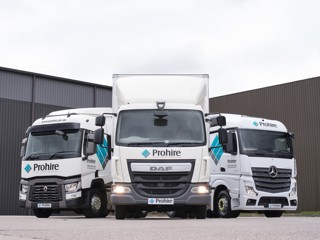Salary sacrifice – the next big thing in funding or a low-key product that has been blown out of all proportion?
Views are mixed in the fleet sector, depending in part on levels of understanding, company policy and, in some cases, personal agendas.
Contract hire companies are launching salary sacrifice products in growing numbers – they expect considerable growth and are making some bullish predictions.
However, some accountancy and tax experts have sided with the Association of Car Fleet Operators’ recent survey which showed that almost half of its members had not and would not consider salary sacrifice as a funding option for their fleet.
For many companies, salary sacrifice is not classed as a fleet issue – it’s an HR matter based around benefits packages.
It’s a natural expansion of an employee scheme which, for those fortunate enough to have one, will already include the likes of discounted holiday insurance, childcare vouchers, cycle to work and medical insurance.
Now, however, in an unexpected twist, a number of companies have decided to switch their entire company car scheme across to a salary sacrifice product.
This development was not fully anticipated by Tusker, the first company to launch salary sacrifice for cars back in 2008, but it’s understandably happy to embrace it.
“We are finding more companies are looking at salary sacrifice to replace a company car scheme and we have a couple that are up and running now,” says David Hosking, Tusker managing director.
He concedes that from a financial perspective there is “not a lot to choose between the two at the moment”, but points to other advantages offered by salary sacrifice.
“Employees treat company cars like a company asset which means more refurbishment at end of contract.
"But with salary sacrifice they treat the car like their own so they are better looked after,” he says.
Any damage that does occur will be charged to the employee, which encourages them to get repairs carried out themselves.
Hosking also claims that wage inflation is less than rising contract hire prices. “In the long-term, it will cut the company’s employer costs,” he adds.
Despite the interest from organisations running company car schemes, most of Tusker’s growth will be from companies adopting cars into their wider benefits packages.
And it anticipates growth will be substantial over the next couple of years.
It shrugs aside the naysayers and critics who point to low take-up rates of just 2-3% of a company’s workforce, instead highlighting absolute numbers and the accelerating rate at which companies are signing up.
Twenty-eight companies, employing around 50,000 employees, are live on Tusker’s SalarySacrifice4Cars (SS4C) scheme, with more in the pipeline.
























Login to comment
Comments
No comments have been made yet.